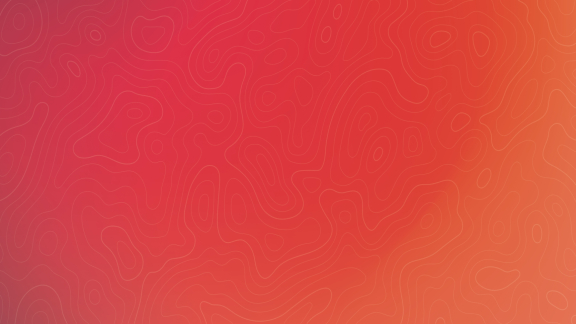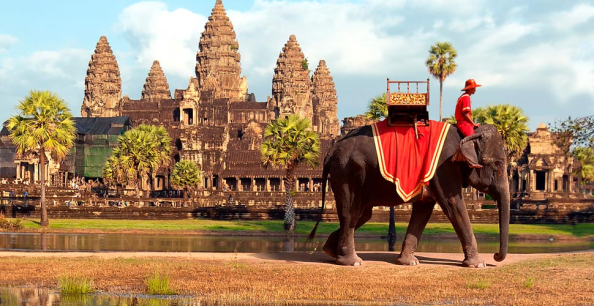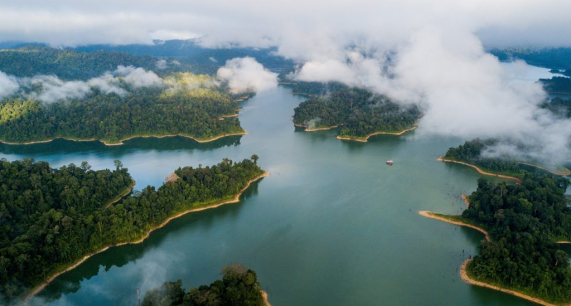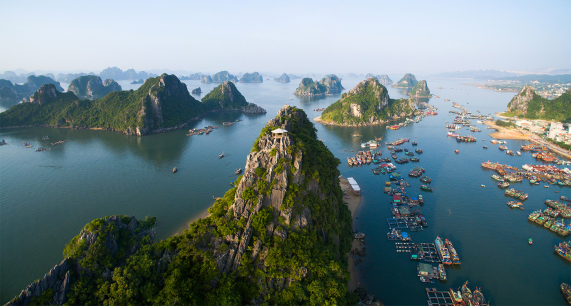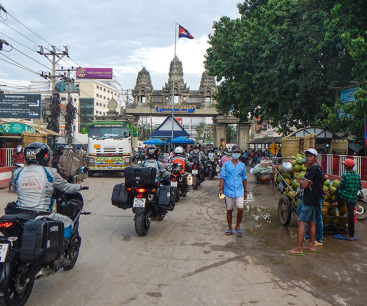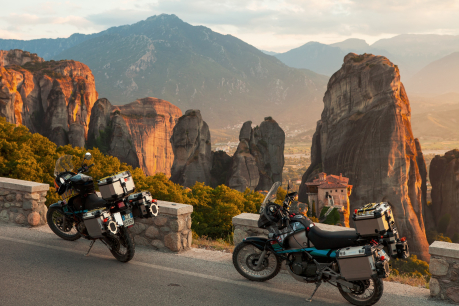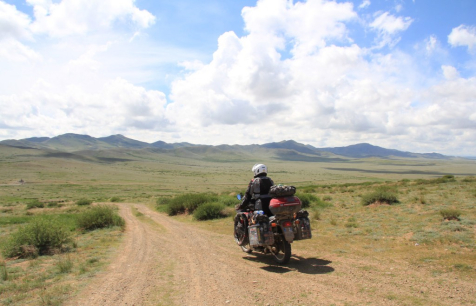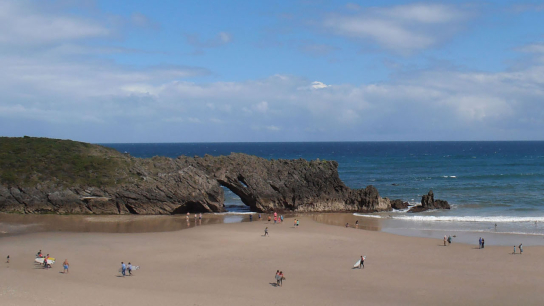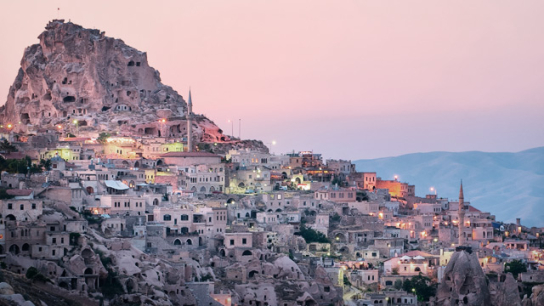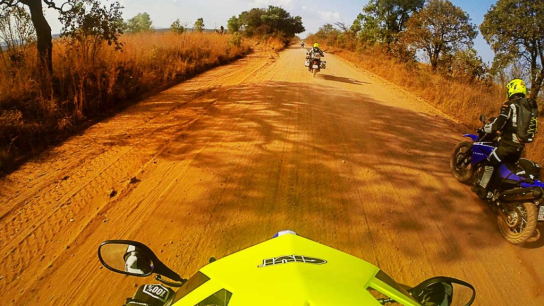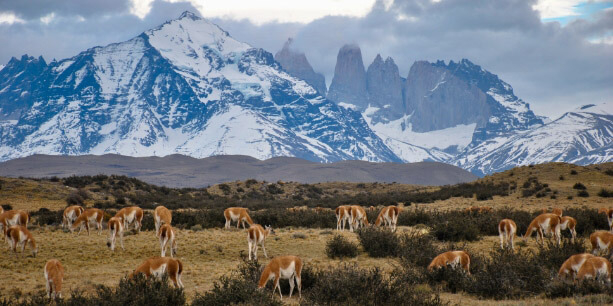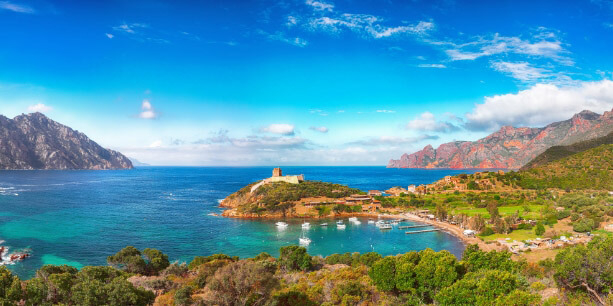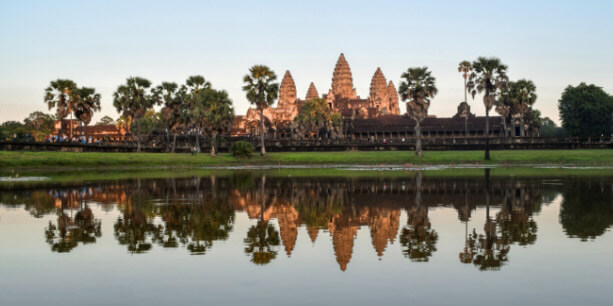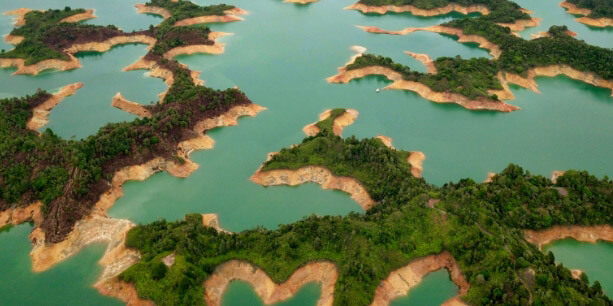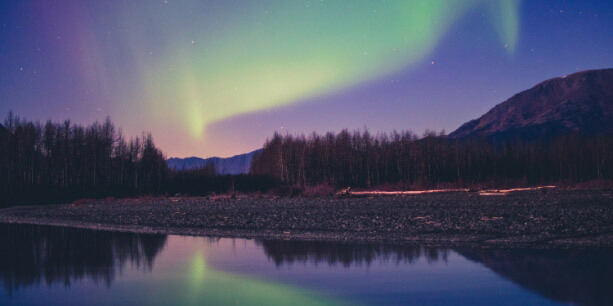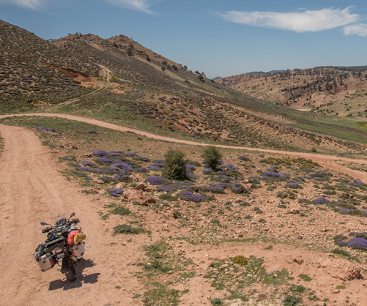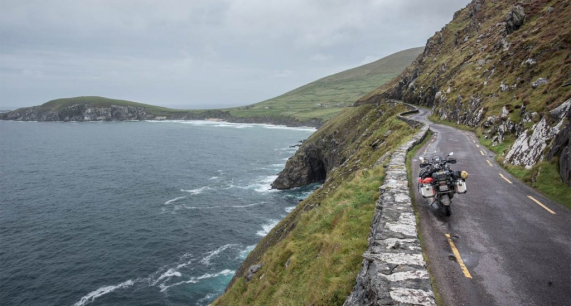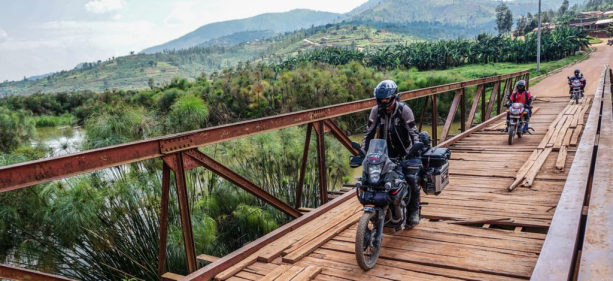Morocco - practical info
Alone or with others?
Morocco is overall a safe country also for those travelling alone or with a wife or partner. However, you are advised to avoid the areas around the border with Algeria to the south-east, as well as Dakhla and Laayoune and the Western Sahara region, particularly to the east of the Moroccan defensive wall (where the authorities have fairly limited control of the territory) and along the entire southern border with Mauritania, due to the presence of minefields. In general, travellers are advised not to travel alone in the isolated and mountainous areas of the country: it is essential to rely solely on authorised guides.
The roads in Morocco are generally in good condition. There are about 1,800kms of motorways, divided in 8 sections, from A1 to A8 (2015 data), and connect the main cities. Toll fees are paid in cash.
The motorway system is complemented by the many national roads (the N1 is the longest and connects Tangier with Lagouira). New connecting roads are built and opened every year.
For those of you who love travelling with a tent and sleeping bag remember there are around a hundred camp-sites in Morocco, often in beautiful natural surroundings. Some offer accommodation in bungalows or traditional tents and often have small restaurants and grocery stores.
Morocco is easily reached directly from Europe and it is simple for you to plan your trip without the support of specialised agencies.
Given its variety, which allows to plan road tours and great off-road raids or a combination of both, it is not difficult to understand what a sought after destination Morocco is for bike travellers the world over.
Will you go alone or with a group of fellow riders? You can easily manage without the support of a local agency or a tour operator.
Do you own a bike with knobby tires? Are you expert off-road riders and consequently are thinking about an adventure raid in the South of the Country? Our advice is anyhow not to do it without the support of a local motorbike guide and always make sure you have a good supply of water, food and petrol.
There are areas where there is no assistance, going by bike is not easy and the routes are not very accessible if you do not know exactly where to go. And this can happen even before touching sand, (for example the crossing of the Jbel Saharo, from Boumalne to Ouarzazate, the rocky desert, the most eastern region of the Atlas mountains).
Being followed by a local guide, maybe with a 4x4 vehicle, allows you to optimise time, discover places you would not see by yourselves, and have assistance in case of falls or breakdown of the bike.
A raid in the Moroccan desert requires time: from five to ten days. A starting point could be Tafilalet, a huge Palm grove surrounded by desert, or, better still, a little further north, the city of Erfoud.
If you are expert off-road riders you can easily find online itineraries suitable for two-wheels. The most popular points are Taouz, Zagora, Tazzarine, the Dadès valley, the Merzouga dunes, Tinfou and Chegaga.
Also the idea of crossing the High Atlas off-road should be considered with the support of a local guide or agency.
For those of you who want to venture further, for example crossing frontiers in the desert, we recommend, before starting the journey, to verify if the borders are actually open. The southern frontier between Western Sahara and Mauritania is characterised by the presence of mine-fields. You must cross the border only along the one route indicated. Finally journeys right next to the southern border with Algeria must be limited to what is strictly necessary.
We remind you that Morocco is an Islamic Country, so, in order to avoid conflict, you must have a careful and respectful attitude especially if you plan to visit sacred places (access for non-Muslims to mosques is prohibited, with the exception of the great mosque “Hassan II” in Casablanca, and during the month of Ramadan).
Motorbike equipment
How to accessorise your vehicle depends on the kind of journey you are planning. If you are staying on asphalt roads, which could be even done, if you wanted, with a maxi scooter, you need a certain kind of set up. Those of you who aim at the High Atlas or the desert, and consequently own a maxi-enduro, must pay more attention when preparing your motorcycle.
For main roads and motorways you need rigid side-cases + internal bags (soft bags and haversack for maxi scooters). The top case increases the usable space, especially if you are travelling as a couple, and is a ‘safe space’ for your helmets. The engine guard is also fundamental and, according to the time of year, an adjustable windscreen or spoiler could come in handy, and then small accessories such as a GPS holder, USB cables and sockets to charge electronic devices (camera, mobile, etc). And make yourselves well visible on the road wearing helmets and clothing with fluorescent inserts and reflective areas.
To go off road in Morocco you must be prepared. Dedicated aluminium side and top cases. Adding internal bags makes transporting luggage during breaks easier (avoiding having to take all the cases). The type of itinerary requires extra water or fuel tanks, along with all the technical accessories to protect the engine from rocks and blows, such as engine guards and carter protectors. On the side cases you can make space for further cargo bags and the list of almost essential smart accessories is a long one: from tire-repair and first-aid kits, to the side stand extension, from the pair of extra lights to the booster to start the motorbike when the battery is dead (but which doubles as an SOS torch and can supply power to any electronic device without the need for any other accessory).
On the market you can find bags which are suitable for the tank of an enduro bike. GIVI has a special product in its catalogue with a removable hip pouch with pockets.
In any case, do not leave your ground anchor behind. The stronger the better: it could make the difference... In case someone tried to steal your bike.
Personal and motorcycle documents
European bikers who enter Morocco usually do it from Spain, with one of the ferries that frequently and rapidly connect Algeciras to Tangier. There are weekly sea connections also with Sète (southern France), Genoa and Livorno (to Tangier)
All EU citizens must be in possession of a passport (with at least enough remaining validity to cover the entire duration of their stay in Morocco). For stays under 90 days no visa is required.
Also the Italian driving licence is valid for 90 days. Motorbike insurance must be completed with a Green Card for Morocco (sometimes Italian companies do not issue it, so it’s better to check). If this is not the case it is necessary to purchase a short-term local insurance. Rules may vary from country to country: to avoid problems at customs it is always best to contact the Moroccan embassy or your Automobile Club. For Italians, this is the Embassy of the Kingdom of Morocco in Italy (Tel: (+39) 06 85 50 8001 / 06 85 50 801; email address: ambasciatamaroccoroma@maec.gov.ma).
Bikers set your souls at rest: arriving at customs riding your motorbike unfortunately means having to undergo searching and slow custom controls. Your vehicle will be registered in the Customs electronic system and will result at every border point in Morocco.
In case you are entering Morocco with a vehicle that is not yours, it is advisable to have a proxy to drive from the owner, written in French and with a signature authenticated by a notary public.
In case of an accident or other reasons preventing you from leaving the Country with your vehicle, you must immediately notify the Police, who will issue a specific document.
Remember that you cannot leave Morocco with Dirham on you.
In Morocco wearing a helmet is obligatory.
Traces of alcohol in the blood are not tolerated. This means that the blood-alcohol concentration, in case of a check while driving, must be zero.
Health conditions
No vaccination is obligatory.
Health conditions are, on the whole, satisfactory. Public health structures are not like European ones (for simple or urgent operations it is best to go to private clinics, present in every city; in case there is need to be admitted costs could skyrocket so it is always better to stipulate an international insurance covering medical expenses and the possible medical emergency repatriation. Pharmacies are plentiful and generally well stocked. The ambulance service is generally inadequate.
Illnesses present: cases have been registered of hepatitis, rabies and, more rarely, typhus (endemic illnesses in Morocco).
Running tap water is drinkable in big cities (Rabat, Casablanca) but it is anyhow advisable to always drink water and beverages from a bottle or can (without adding ice). Avoid eating local cold cuts, raw sea food, raw vegetables, unpeeled fruit and non-pasteurised milk. Gastrointestinal problems are frequent, accompanied by diarrhoea and/or vomit and also fever.
The COVID-19 situation
As of 30 September 2022, the healthcare restrictions previously in force (PCR Test and/or Vaccine Certificate) have been lifted.
As of 3 January 2023 and until further notice, local authorities have banned all travellers coming from China, regardless of their nationality, from entering Moroccan territory.
For further information, including the restrictions in force in the country, see the "Situazione Sanitaria" section of the https://www.viaggiaresicuri.it/home website.
Language, currency and other tips
Official languages: Arabic and Amazigh (Berber). French is widely diffused, knowledge of Spanish and Italian is good, English is little known.
Official currency: Moroccan Dirham (1 euro = 10.91 DM)
Prefix from abroad: 00212 + the area code without the zero.
Phone and Internet: the temporary import and use of mobile phones is allowed. Morocco is part of the GSM circuit. Coverage is almost total for the three mobile phone operators, Maroc Télécom, Meditel and Inwi. In the mountain regions and the desert Maroc Télécom guarantees better coverage. The temporary import of CB radios is allowed.
In cities Internet Cafés are very common and anyhow it is not difficult to find a bar or shop which allows you to use their wi-fi connection.
Italian embassy in RABAT: 2, Zankat Idriss Al Azhar B.P. 111 - Quartier Hassan - 10000 Rabat, Morocco - Tel.: 00212 537 219 730 - Mobile (active for emergencies when the Embassy is closed): 00212 661 221 324 - e-mail: ambasciata.rabat@esteri.it
In hotels voltage is 220, in smaller places you can still often find 110Volts.
Useful Numbers:
Emergencies: 112
Police: 19 (landline) and 112 (mobiles)
Ambulance and Fire Department: 15
Royal Gendarmerie: 177
Road Safety Phone line: 5050 (on the motorway)
Fuel
There are many petrol stations where you can find good-quality lead-free petrol and gasoline. Average cost (recorded on 05 June 2023) of a litre of petrol is US$1.386 / €1.294.
When to travel
It is difficult to define Morocco’s climate. The size and morphology of this Country create different climate zones. Generally we can define it as temperate on average (if we exclude the High Atlas in winter, with snow and rather low temperatures, and the desert strip in summer, with high temperatures).
The rainy period goes from November to February and adds the inconvenience of some roads being impassable.
Leaving in spring guarantees sun and mild climate (around 23-26°C in Agadir and Marrakesh), blossoming trees and mountain tops still covered in snow.
In summer the coast line mitigates the heat with the sea breeze and the mountains, above 1,500 metres (like the Valley of Ifrane for example) offer a cool climate.
Beyond the High Atlas, in the South of the country you must deal with temperatures close to 40°C.
Autumn offers longer nights and milder temperatures inland: the winter rains have not yet arrived and it is still peasant to swim in the Ocean.
Choosing winter means aiming for the long Moroccan coast (on the Middle Atlas you ski) and the desert.
Motorcycle rental
Flight connections are good both for internal flights and for connections to Europe. There are connections with low-cost airlines that allow you to easily and cheaply reach Morocco. Whoever decides to leave their own motorbike at home (to make the most of a short holiday for example); will find many specialised companies in this country. Here are a few, but online the list of possible alternatives is really long.
https://www.rentalmotorbike.com/
They are present in many Countries around the world. Their Moroccan branches are in Agadir, Casablanca, Ceuta, Essaouira, Fez, Marrakech, Ouarzazate and Rabat. You can rent small, medium or powerful engine motorcycles and scooters, both for on- or off-road.
For quotes or other info you need to fill in a form. You can also call the phone numbers +44 203 769 00 23 and +1 201 478 89 64
https://www.giacomoferri.it/
Off-road pilot with a long racing career, who has become today an enterpreneur in Morocco. He owns a hotel and is a guide for bikers who love Enduro, light off-road and trips on asphalt. Advice on possible bike hire.
Ksar Hassilabied - Merzouga (Morocco)
GPS N 31°08'43.8"N 4°01'56.7"W– g.ferri@hotmail.it– mob. +35 335 528 9099 (Whatsapp only)
https://agadirmotos.com
Rental and assistance with a local guide of Yamaha, Honda, BMW and KTM bikes. No limit for the itineraries. It is possible to have your hired bikes sent directly to the airport or hotel of many Moroccan cities.
jouatours@gmail.com
AGADIR: Bloc 11 N°3&4 rue de Marrakech
MARRAKECH: 137, Diour Marjane, near Citroën
ESSAOUIRA: Operation bab doukala boutique N°44
Tel: + 212 661 574 478
Contents updated as of May 2023
Your indications are always useful to update the PRACTICAL INFO


